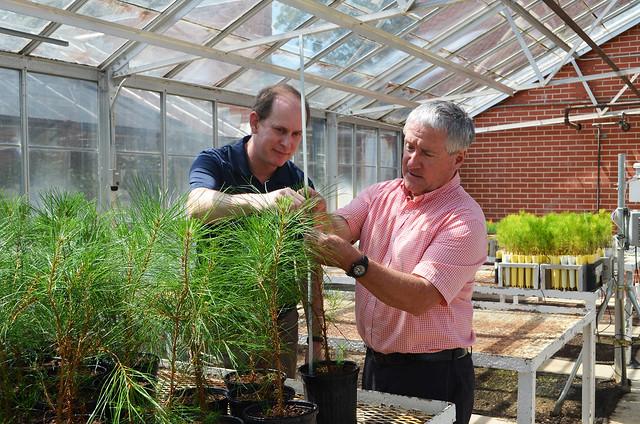Auburn University research has helped lead to a new product to reduce Southern pine seedling mortality for the forestry industry.
“This is a major accomplishment that will allow forest tree nurseries to store their seedlings for longer time periods without detrimentally affecting the seedlings’ survival,” says Ryan Nadel, assistant research professor with Auburn’s School of Forestry and Wildlife Sciences.

The product from AgroFresh, trademarked as LandSpring, recently received EPA approval to include conifer seedlings after three years of testing by the Southern Forest Nursery Management Cooperative at Auburn.
The U.S. produces more than 1.2 billion forest tree seedlings for reforestation annually, with more than one billion produced in the Southeast. The majority of seedlings are conifers, produced as bareroot seedlings and grown in a similar manner to farming regular agricultural crops.
Auburn research has shown the use of LandSpring increased the survival rate by 10 percent, which would potentially yield the growth of an additional 1.2 million pine seedlings after outplanting—the process of lifting, packing, storing and replanting—as compared to non-treated seedlings.
“Weather conditions are not always optimal for planting the seedlings once harvested from the nursery, requiring seedlings to be stored for longer periods than recommended,” says Nadel.
The Auburn University Southern Forest Nursery Management Cooperative is a regional multisector member organization that serves to develop technologies for the economical production and utilization of forest tree seedlings in the southern U.S.
